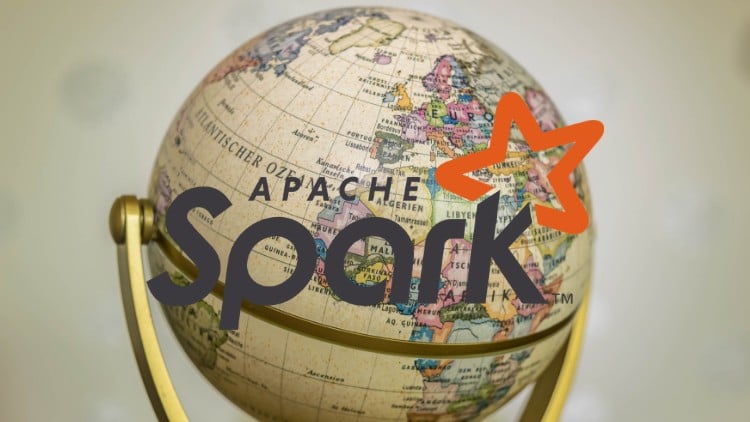
World Development Indicators Analytics Project in Apache Spark for beginner using Apache Zeppelin and Databricks
⏱️ Length: 5.5 total hours
⭐ 4.07/5 rating
👥 38,622 students
🔄 September 2025 update
Add-On Information:
Note➛ Make sure your 𝐔𝐝𝐞𝐦𝐲 cart has only this course you're going to enroll it now, Remove all other courses from the 𝐔𝐝𝐞𝐦𝐲 cart before Enrolling!
-
Course Overview
- This course offers a compelling entry point into the world of big data analytics, grounding learners in a socially relevant and impactful project. It goes beyond theoretical concepts, immersing you in a hands-on journey to decode the complexities of global development using Apache Spark. You’ll move from initial data exposure to crafting sophisticated analytical narratives around critical socio-economic indicators. Imagine harnessing the power of distributed computing to uncover patterns in world health, education, economic stability, and environmental sustainability that impact billions. This isn’t just about learning Spark; it’s about developing a profound understanding of how data can inform policy, reveal disparities, and highlight progress across diverse nations. The curriculum is meticulously designed to transform raw World Bank data into meaningful insights, providing a solid foundation for aspiring data professionals interested in real-world application and ethical data stewardship. Prepare to analyze the pulse of the planet, one Spark DataFrame at a time.
-
Requirements / Prerequisites
- Designed with the budding data enthusiast in mind, this course presumes minimal prior exposure to big data technologies. You should possess a foundational understanding of programming logic, ideally with some familiarity in Python, as Spark’s primary API is often leveraged through Python (PySpark). A basic grasp of data concepts, such as tables, columns, and data types, will be beneficial but not strictly necessary as these will be reinforced throughout the project. Crucially, a keen interest in data-driven problem-solving and an eagerness to explore global socio-economic trends are your most valuable assets. No prior experience with Apache Spark, distributed computing, or cloud platforms like Databricks is required – the course meticulously guides you through every setup and operational step from the ground up, ensuring a smooth learning curve for absolute beginners. A stable internet connection and a web browser are the only technical requirements to access the cloud-based learning environment.
-
Skills Covered / Tools Used
- This project-centric course cultivates a diverse array of highly sought-after analytical and technical competencies. You will master the fundamentals of working with large-scale datasets within a distributed computing framework, specifically Apache Spark. Beyond mere syntax, you’ll gain practical expertise in the entire big data analytics lifecycle: from strategic data ingestion and efficient data cleaning to sophisticated transformation techniques vital for real-world scenarios. The course solidifies your ability to perform exploratory data analysis (EDA) on massive datasets, uncovering hidden correlations and trends that inform critical insights. You’ll also develop proficiency in leveraging cloud-based analytical environments, particularly Databricks, which streamlines Spark development and deployment. This includes navigating notebook interfaces, managing clusters, and sharing analytical results effectively. While Databricks serves as the primary hands-on platform, the architectural principles of distributed processing learned are transferable to other Spark environments, including those using tools like Apache Zeppelin. You’ll enhance your data storytelling abilities by presenting complex statistical findings in an understandable and impactful manner, crucial for any data professional. This foundational skillset prepares you for more advanced big data roles and projects across various industries, from finance to social science research.
-
Benefits / Outcomes
- Upon successful completion of this immersive project, you will emerge with more than just theoretical knowledge; you’ll possess a tangible, portfolio-ready big data analytics project. This course significantly boosts your confidence in tackling real-world, messy datasets, transforming ambiguous challenges into clear, data-backed conclusions. You’ll be equipped with the practical acumen to independently set up, execute, and interpret large-scale data analyses using industry-standard tools and frameworks. This hands-on experience translates directly into enhanced career prospects, making you a more competitive candidate for entry-level data engineering, data analysis, or data science positions that require Spark proficiency. Furthermore, you will develop a deeper appreciation for the nuanced interplay of global development indicators and the power of data to illuminate complex societal issues. The ability to articulate and visualize insights from a massive dataset like the World Development Indicators will serve as a powerful demonstration of your analytical capabilities to potential employers or academic institutions, laying a robust groundwork for continuous learning and specialization in the expansive field of big data.
-
PROS
- Highly Practical & Project-Based: Learn by doing on a meaningful, real-world dataset, directly applicable to industry challenges.
- Beginner-Friendly Approach: Designed specifically to guide novices through complex topics without overwhelming them.
- Industry-Standard Tools: Gain hands-on experience with Databricks and Apache Spark, essential for modern big data roles.
- Socially Relevant Data: Work with the World Development Indicators to address global issues, making the learning experience deeply engaging and impactful.
- Strong Community Validation: A high rating (4.07/5) from over 38,000 students underscores the course’s quality and effectiveness.
- Cloud-Agnostic Skills: While using Databricks, the core Spark concepts are transferable to any cloud or on-premise Spark environment.
- Up-to-Date Content: The September 2025 update ensures you’re learning the latest techniques and best practices in Spark analytics.
- Portfolio Builder: Completing this project provides a concrete example of your big data capabilities for job applications.
-
CONS
- Limited Advanced Scope: As a beginner course, it may not delve into highly advanced Spark optimizations or distributed systems architecture in extreme depth.
Learning Tracks: English,Development,Software Engineering
Found It Free? Share It Fast!